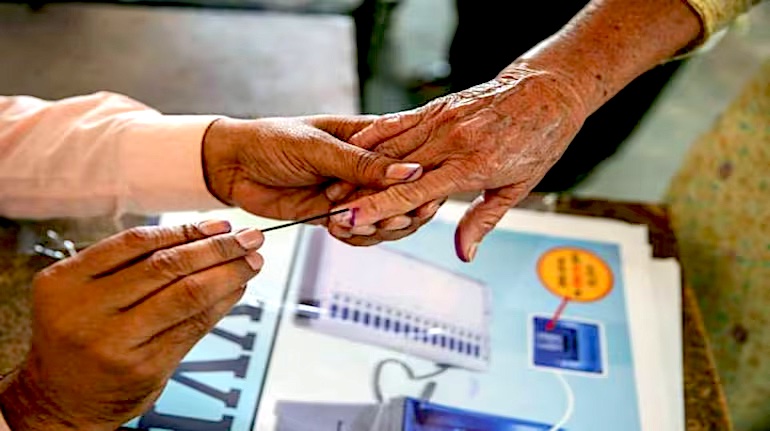Photo courtesy of moneycontrol
On May 6 Sri Lanka will hold local government elections for 339 councils, engaging over 17 million voters. The elections come at a pivotal moment for the NPP, which has seen a surge in support but now faces growing scrutiny over its governance and internal coherence.
A key issue for voters is whether to prioritise party allegiance or the personal integrity of candidates. While the NPP campaigns on an anti-corruption, anti-waste platform, critics point to its internal contradictions and alleged compromises, including the appointment of individuals previously accused of misconduct. Many of these allegations lack substantiation but the government’s muted response risks fostering perceptions of systemic corruption.
Opposition voices, including former President Ranil Wickremesinghe, forecast a fragmented electoral outcome, predicting that coalition politics may shape council control. This scenario may further entrench existing political rivalries and undermine effective local governance.
The local councils’ role in reshaping Sri Lanka’s development path is crucial. Elected representatives must manage resources responsibly, generate local revenue and advocate for equitable service delivery, especially in underdeveloped areas like Moneragala, Mannar and Mullaitivu. Yet tensions remain high due to controversies around central government interference, politicised funding allocations and lingering disputes over land and identity, particularly in the north and east.
Accusations surrounding the Tissa Maha Viharaya temple in Kankesanturai – linked to military involvement and land disputes – underscore the sensitivity of ethno-religious issues. The NPP has been criticised for ambiguous positions that echo Sinhala-Buddhist nationalist agendas despite professing a non-discriminatory stance. This has caused concern among minority communities and civil society about the government’s commitment to reconciliation and inclusivity.
International dynamics, including the geopolitical struggle between China and the West, further complicate the situation. Sri Lanka risks being caught in a proxy conflict making the need for stable, transparent and community-responsive governance even more urgent.
Despite its reformist rhetoric, the NPP appears hampered by a lack of practical governance experience among its leadership. The reliance on raw or unverified data has undermined the process of decision making, reflecting weaknesses in the public service nurtured over decades by successive governments. There is a growing concern that the NPP could slip into bureaucratic authoritarianism, repeating the mistakes of leftist governments elsewhere that have conflated party and state.
For lasting reform, the NPP must go beyond anti-corruption promises to embrace democratic governance, national reconciliation and a commitment to human rights. The delay in addressing transitional justice issues such as missing persons, land returns and military downsizing is eroding confidence among war-affected communities.
As local elections approach, voters face a crucial choice: candidates who demonstrate a real commitment to public service versus those who merely represent party interests. While some NPP-affiliated candidates may be untested, others may have shown dedication to fighting inefficiency and corruption. Voters have to choose wisely as those elected will play a significant role in either deepening democratic governance or enabling further decay.
Sri Lanka’s democratic future may well depend on this election, not just in who wins but in how governance is reimagined at the grassroots. Is Sri Lanka able to survive if the current agenda of the NPP government is derailed at these local government and provincial council elections? No opposition group has presented a better political agenda or policy stance than the NPP government to address the socio-economic and political issues the country is currently facing. On May Day, the president pointed out that the challenge of adapting to the new circumstances facing the country and resolving those issues does not come from outside but from within.
